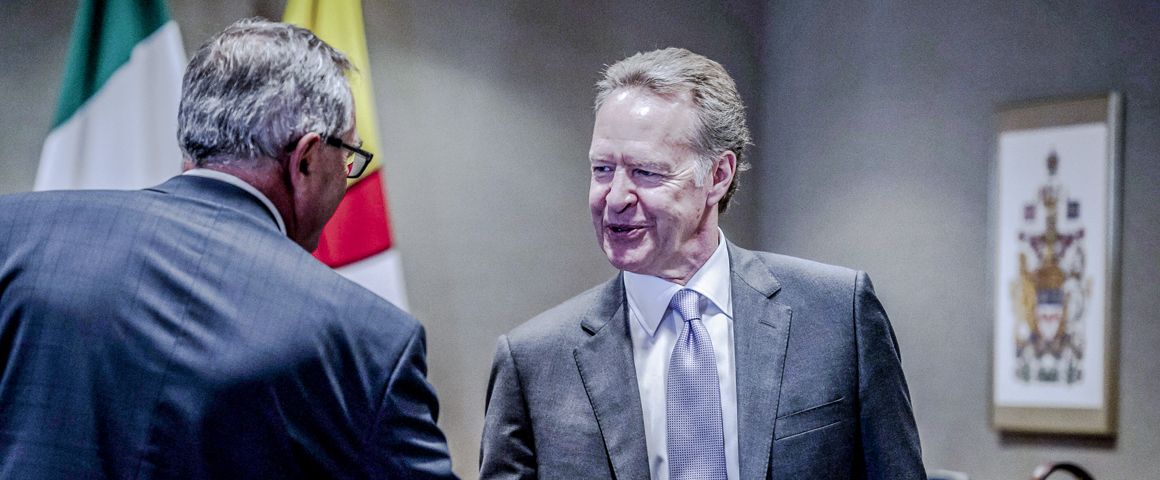News that the US has withdrawn its demand 50% of auto content be produced in the US, and 80% be produced in North America – a demand that would have eliminated automobile assembly and parts plants and jobs in Canada – has left news media and NAFTA analysts in Ottawa light-headed. They think they’ve just cleverly avoided a lethal fall over the edge of cliff.
But they’ve forgotten two things. First, that it was the Trump administration that opened NAFTA renegotiations by putting a whole number of “over the cliff” options on the table, starting with stripping Canada of auto and manufacturing jobs and industries, and continuing with eliminating Canada’s supply-management system in agriculture (bankrupting farmers and damaging Canada’s food security); procurement policies that would quickly privatize public services and universal social programs; unfettered access to Canada’s softwood lumber, oil and gas, and other rich natural resources.
The second thing forgotten is that the US is still demanding these things. Furthermore, having dropped their first over-the-cliff demand, they’re expecting Canada’s negotiators to concede on one or preferably more of their other demands – and jump over the edge of the cliff.
According to media reports, US Chief Negotiator Lighthizer wants Canada to give up our supply management system for dairy and poultry, our “ridiculous” $20 threshold for applying duties on goods purchased outside Canada, including on-line purchases; and our “third world” intellectual property protections, among other things not specified.
This would be folly for workers and farmers, and for Canada.
The great danger now is that the federal government will give in to these demands, blowing big new holes in Canada’s economy, sovereignty, democracy, jobs and social programs. Mass public protests and pressure from the labour and democratic movements can stop the government from signing on to a bad deal that’s even worse than the original for working people.
It’s time that governments fought for working people and for the interests of the country, instead of the greedy trans-national corporations that finance them.
Instead of free trade, we need multi-lateral and mutually beneficial fair trade with the world, and a government willing to implement policies that put people before profits.




